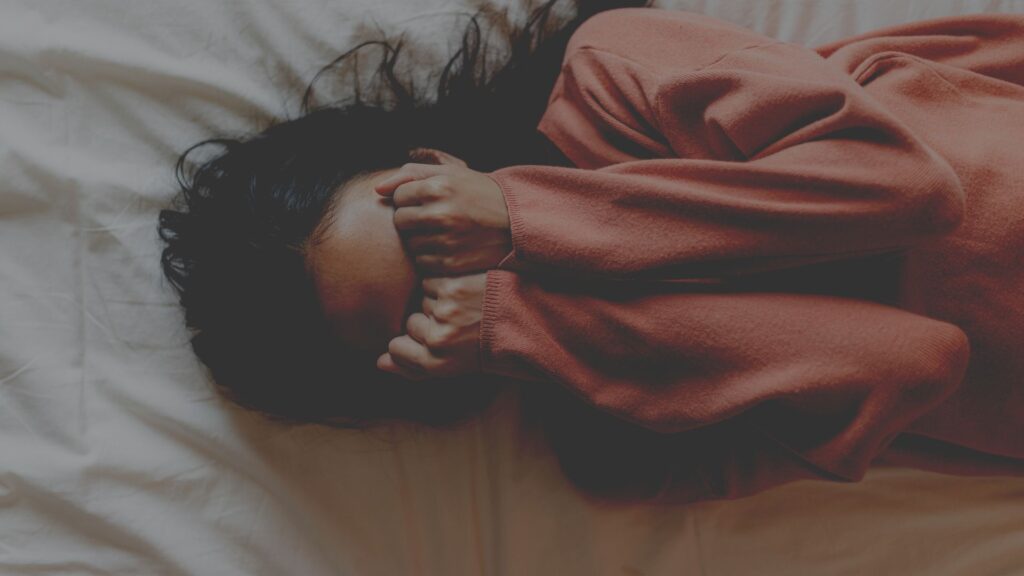INSOMNIA: A Big deal of today’s world & How to deal with it!!

Nutrition and Wellness in Proper Weight Management
December 15, 2023
Green Savoury Pancake (Gluten free, dairy free, vegan)
February 27, 2024~Sukanya Roy~
It is one of the worst feeling to toss and turn in the bed, when rest of the world is in the dreamland! Even if you are trying your best, you are not able to sleep and your mind is just going on and on, your eyes wide open- the result is another sleepless night.
Almost all of us have faced at least some sleepless nights in our life during moments of some stressful or exciting occasions like the day before some exams, before an important job interview, due to some acute health issues or the night before our “The big day”!
On the other hand, some people get chronic sleeplessness and they often have serious trouble falling asleep or staying asleep, (the Insomnia effect?)
Insomnia! What is it?
Are you unable to fall asleep or stay asleep at night resulting in disruptive or non-restorative sleep??
Then it might be termed as insomnia.
The continuation of insomnia can lead to short term daily issues like difficulty waking up, fatigue, feeling irritated, demotivated or even long term health concerns like hormonal imbalances, poor immune functions, upset digestive system, nervous system dysfunction including poor cognitive abilities, memory loss and so on.
Symptoms
- Poor concentration, poor memory and cognition,
- Low energy and fatigue
- Low motivation and productivity,
- Several digestive issues,
- Dysglycemia
- Irritability, anxiety and depression.
What might lead to Insomnia?

- Stress (The most notorious one!)–Acute and chronic stress can lead to short term and long term insomnia respectively.
- Medicalconditions-Diabetes, cardiovascular disease, premenstrual syndrome, sleep apnea, adrenal fatigue, insulin resistance etc can be associated with insomnia
- Irregular/Poor lifestyle habits- Poor daily habits like irregular sleeping time, using mobile phones in bed, overeating and drinking at night eventually can result in insomnia.
- Chemical/Hormonal imbalances– Imbalance in the synthesis and/or secretion of hormones like melatonin, cortisol and serotonin (a neurotransmitter) can directly disrupt circadian rhythms.
- Caffeine, nicotine and alcohol– These are stimulants which disturbs the normal quantity and quality of sleep.
- Medications- Antidepressants, corticosteroids, blood pressure medications etc could impair normal sleeping
What are some of the best ways to deal with Insomnia!!
Insomnia- the most common sleeping disorder and most of the people now a days might have either short term or long term insomnia.
However several researches have shown that it can be dealt with proper sleep hygiene and lifestyle habits.
Such a great news, really!!
- Keeping a consistent sleep schedule Making an effort to maintain a regular sleep schedule by going to bed and getting up at a regular time everyday (even in weekends and holidays? The answer is YES!) which will definitely aid in getting back into a regular daily rhythm.
- Practising some simple relaxation techniques Regular practice of several simple relaxation methods like guided meditation, yoga and deep breathing exercises helps calm our body and mind thus helping to get quality sleep.
- Turning off and removing all the electronic screens at least half an hour before sleep Instead of watching mobile screen or television which emits blue light that impairs the body’s ability to produce melatonin and sleep cycles.
- Avoiding intake of caffeine, nicotine and alcohol in the late evening or at night These are stimulants which disrupts the normal quantity and quality of sleep.
- Trying to avoid stressful works or stimulating activities before bedtime Stressful work related deadlines, brainstorming, and stimulating discussion or arguments could be disruptive to our good night’s sleep.
- Keeping the bedroom dark and comfortable The bedroom should be quiet, dark and comfortable to maintain the normal sleep cycle.
- Not staying on the bed when unable to sleep Instead of tossing and turning in bed thus increasing anxiety, we should get up and do some relaxing activities like listening to soothing music or read a book, which could calm the mind and help us to get sleepy in sometime.
- Trying to avoid overeating or a heavy dinner Overeating might lead to digestive upsets which in turn might impair sleep.
- Soaking in a warm bath with epsom(magnesium sulphate) salt before bedtime Warm bath with epsom salts and relaxing essential lavender oils before bedtime could calm and soothe our mind and body.
Nutrients essential for proper zzzz’s & the foods rich in them
- Tryptophan- Chicken/turkey, fish, eggs, pumpkin seeds, soybeans
- Melatonin- Tart cherries, rice, fatty fish, pistachios, walnuts, strawberries, kiwifruit, tomatoes
- Magnesium– Spinach, berries, brown rice, beans almonds and other nuts, papayas
- Zinc– Sesame/pumpkin/hemp seeds, Brazil nuts cashew nuts, pomegranates
- Calcium- Dark leafy greens, yogurt, chia/sesame/flax seeds, fish
- Vitamin B6 and B9– Rice bran, green leafy vegetables, chickpeas, turkey/chicken,asparagus
All of the above mentioned nutrient supplements help in the normal synthesis and secretion of hormones required to maintain our circadian rhythm, thus improving the most common sleeping disorder, insomnia. Magnesium also helps to reduce stress ( the worst enemy of sleep).
References
- https://www.ncbi.nlm.nih.gov/books/NBK526136/
- https://www.womenshealth.gov/a-z-topics/insomnia
- https://www.healthdirect.gov.au/insomnia
- https://medlineplus.gov/insomnia.html
- https://www.sleepfoundation.org/nutrition/food-and-drink-promote-good-nights-sleep
- https://www.samhealth.org/about-samaritan/news-search/2020/07/13/five-essential-nutrients-for-better-sleep#:~:text=Magnesium,all%20good%20sources%20of%20magnesium.
- https://my.clevelandclinic.org/health/diseases/12119-insomnia
- https://www.sleepfoundation.org/insomnia
- https://www.andrewmajorhypnotherapy.co.uk/blog/overcome-insomnia/
- https://wexnermedical.osu.edu/blog/six-tips-to-break-the-insomnia-cycle-and-get-some-sleep
- https://www.everydayhealth.com/insomnia/guide/
- https://www.everydayhealth.com/insomnia/what-when-you-cant-sleep-all-about-insomnia-treatments/




